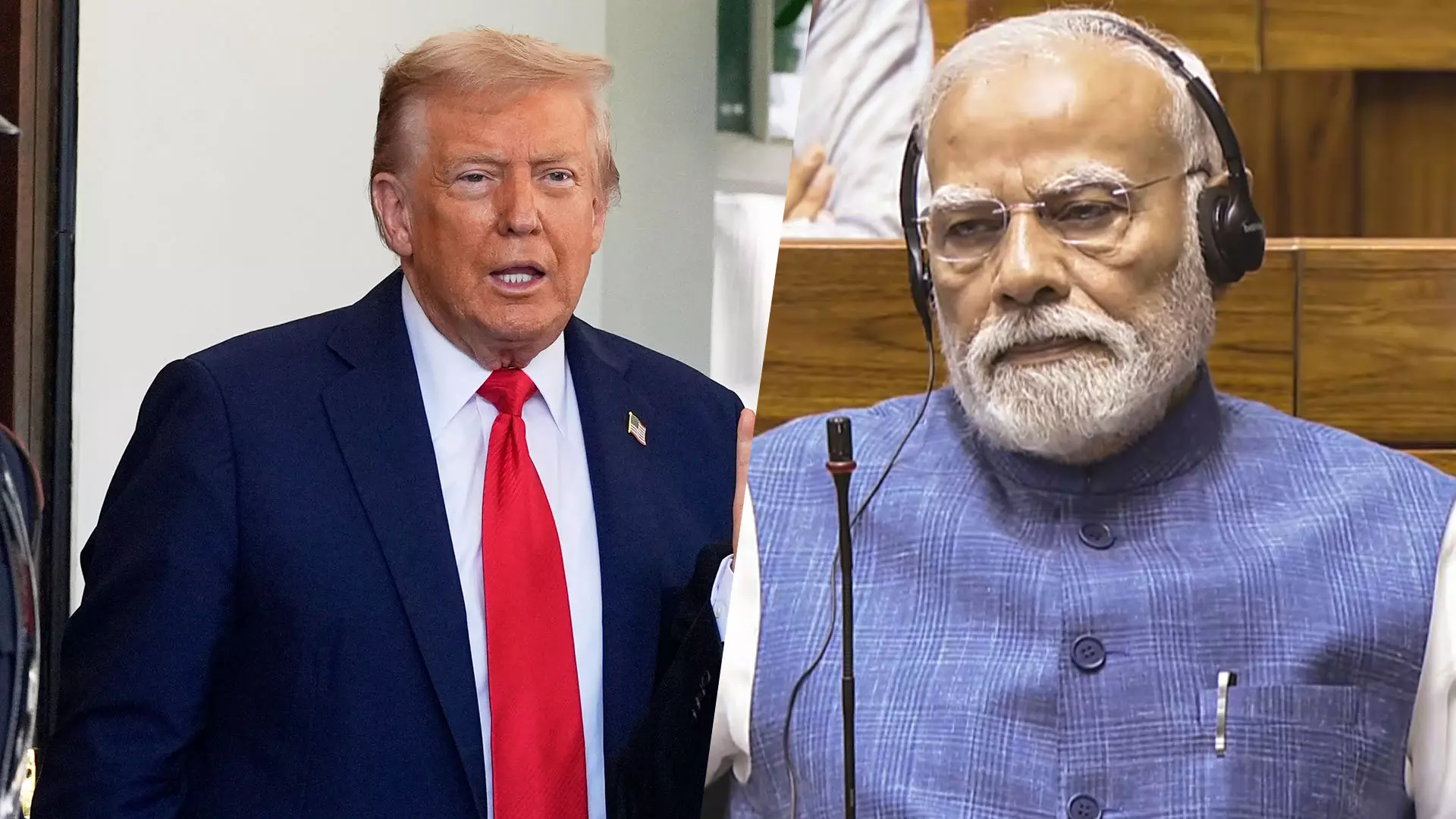
Trump shelves India visit for Quad Summit amid strained ties with PM Modi: Report
The report delves into how a deepening trade rift, Trump’s push for a Nobel Prize, and a bitter row over Pakistan ceasefire claims have widened the rift between the two leaders

US President Donald Trump “no longer has plans” to visit India later this year for the Quad Summit, The New York Times reported on Saturday, citing sources familiar with his schedule.
This comes a couple of months after New Delhi had announced that Trump had accepted Prime Minister Narendra Modi’s invitation to attend the Quad Leaders’ Summit. The visit was expected to coincide with the conclusion of negotiations on a long-pending bilateral trade agreement.
Also read | Trump has no legal right to impose sweeping tariffs, says US court, but allows him to appeal
An NYT report titled “The Nobel Prize and a Testy Phone Call: How the Trump-Modi Relationship Unraveled” states that Trump had previously informed Prime Minister Narendra Modi that he would travel to India in the fall, but has since abandoned those plans.
No official response yet
Neither the US nor the Indian government has issued an official response to the report. India is scheduled to host the Quad Summit later this year. Earlier, the Trump administration hosted the Quad Foreign Ministers’ Meeting in January, shortly after Trump began his second presidential term.
The report highlights how ties between Trump and Modi began to deteriorate amid ongoing trade tensions, particularly after Trump repeatedly claimed credit for resolving a four-day military conflict between India and Pakistan in May, claims that India has consistently denied.
“President Trump’s repeated claims about having 'solved' the India-Pakistan war infuriated Prime Minister Narendra Modi of India. And that was only the beginning,” the report states, adding that Modi was “losing patience” with Trump.
Trump and Modi had a 35-minute telephonic conversation on June 17, as Trump returned to Washington from the G7 Summit in Canada, which Modi also attended. A face-to-face meeting had been planned on the summit sidelines in Kananaskis, but Trump left early, prompting Modi to speak with him over the phone instead before his departure.
Row over ceasefire credit
India’s Foreign Secretary Vikram Misri, in a video message from Kananaskis, stated that Modi made it clear to Trump that there was no discussion of a US-India trade deal or any US mediation proposal concerning the India-Pakistan conflict. Misri emphasised that the ceasefire talks had occurred directly between Indian and Pakistani armed forces through existing military channels and were initiated by Pakistan. Modi reportedly told Trump firmly that India does not, and will never, accept any third-party mediation in its conflict with Pakistan.
During the June 17 call, Trump again claimed credit for ending the escalation and mentioned that Pakistan intended to nominate him for the Nobel Peace Prize, an award previously won by Barack Obama and one that Trump has openly pursued. “The not-so-subtle implication, according to people familiar with the call, was that Mr Modi should do the same,” the NYT reported.
Modi reacted strongly, telling Trump that the US had no role in the recent ceasefire, which had been settled directly between India and Pakistan. While Trump appeared to dismiss Modi’s objection, the disagreement, and Modi’s refusal to support Trump’s Nobel ambitions, played a significant role in straining their ties that had once been strong during Trump’s first term, the NYT stated.
Trump’s tariff move ‘punitive’
The NYT noted that the White House never publicly acknowledged the June 17 call, and Trump did not mention it on social media. Since May 10, Trump has publicly claimed over 40 times that he was responsible for ending the India-Pakistan conflict. “And it is also the tale of an American president with his eye on a Nobel Prize, running smack into the immovable third rail of Indian politics: the conflict with Pakistan,” the report added.
Also read | Trump’s 'personal pique' led to 50 per cent tariffs on India, says Jefferies
The article also highlighted Trump’s decision to impose a 25 per cent tariff on India over its purchase of Russian oil, suggesting that the move was punitive rather than policy-driven. “The colossal penalties on India in particular appear to be punishment for not falling in line rather than any kind of cohesive effort to reduce the trade deficit or cut off funding for Russian President Vladimir Putin’s war,” the report said.
Richard Rossow, chair on India at the Centre for Strategic and International Studies, was quoted as saying the issue was “about more than just Russia.” He noted, “If this was a real change in policy in trying to squeeze Russia, Trump could have put his weight behind legislation that would have imposed secondary sanctions on countries that buy Russian hydrocarbons. The fact that they have uniquely targeted India says this is about more than just Russia.”
According to the NYT, as Trump grew increasingly frustrated with stalled tariff negotiations, he attempted to contact Modi multiple times, but the Indian prime minister did not respond.

